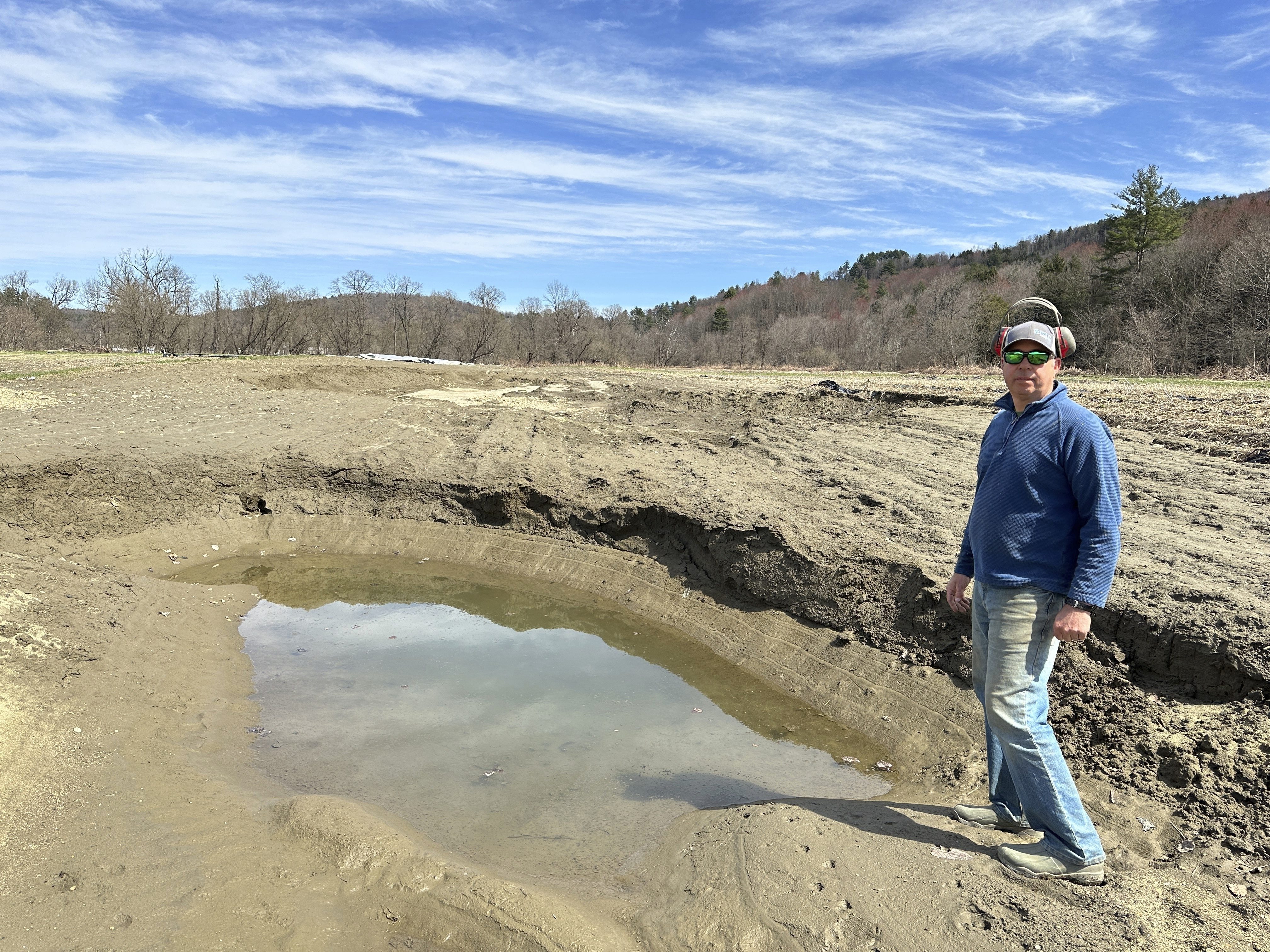Agriculture officials in Vermont say hemp has the potential to be a game-changer for farmers looking for new sources of income, in both the Green Mountain State and all across rural America.
For it to really take off, though, the federal government would have to make some significant changes.
"The market is driving the expansion," said Anson Tebbetts, the secretary of the Vermont Agency of Agriculture, describing growth in hemp in his state.
Hemp looks like a pot plant, but even if you smoked a whole plant, hemp farmers at Colomont in Fairfax insist it just couldn't get you high.
Hemp is a sort of cousin to marijuana that's used in textiles, high-strength fibers, fuel and, increasingly, in cannabis oil extracts many see as having wellness benefits.
"We've helped people with arthritis, psoriasis, lots of general aches and pains," recounted Chris Santee, the founder of Colomont. "It's kind of like Ponce de Leon with his search for the fountain of youth."
Federally, hemp has long been a thorny topic.
Vermont
The latest news from around the state
The DEA still treats it as if it's a drug, even though hemp, such as what's growing at Colomont, has different chemicals in it than marijuana.
But that classification could soon change, with bipartisan support in Congress for letting farmers expand production of the versatile crop.
"Around $600 million in hemp products are sold each year here in the U.S., but due to current laws, much of this hemp has to be imported. That cuts out our American farmers," Sen. Mitch McConnell, R-Kentucky, said in April when discussing legislation he introduced to cut regulations on hemp and expand the production of domestic hemp farming.
In addition to action on hemp taken in the Senate, Rep. Peter Welch, D-Vermont, has vocally backed a pair of bills in the House of Representatives that would encourage the farming of industrial hemp and declassify hemp as a controlled drug.
In 2013, Vermont passed its own laws authorizing hemp cultivation, without waiting for the Feds to loosen their regulations.
Vermont has really seen interest in this area spike recently. The state's agriculture agency registers hemp growers and said Tuesday that as of late July, across the state, 382 growers filed paperwork to produce hemp on 2,247 acres.
Those numbers represent an approximate quadrupling over last year, according to state figures.
Vermont Agriculture Secretary Tebbetts and Deputy Vermont Agriculture Secretary Alyson Eastman toured Colomont Tuesday, to learn more about hemp, as well as the agricultural and business practices behind it.
In addition to hemp-focused startups, Tebbetts said the agency sees hemp as a potential alternative crop for other farmers, such as dairy producers looking to diversify their operations.
"This is an agricultural crop and should be treated as an agricultural crop," Tebbetts said about his view that hemp should no longer be classified alongside drugs. "If the federal government was to get out of this, more people would be willing to lend money — startup money — for folks. Some folks are reluctant to do that right now because the federal government still classifies it as a federal drug."
While Washington works on shaping the future for hemp, at farms like Colomont, growers say they're learning more and more every week about how to manage their fields and plants, adapting to changing interest in this often-misunderstood plant.



